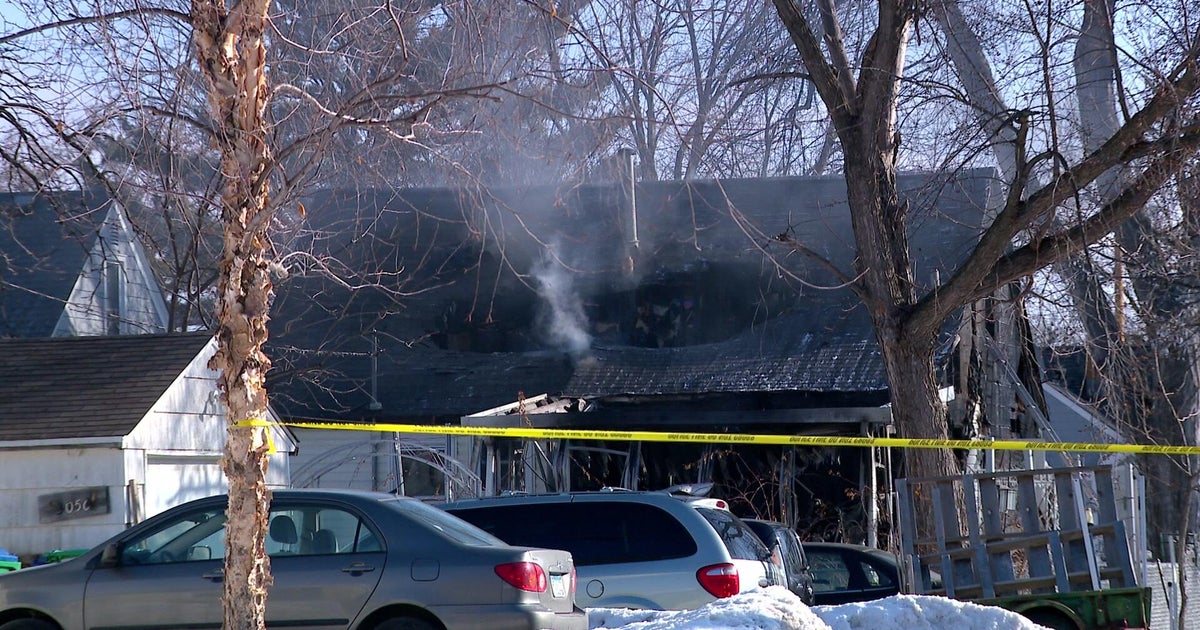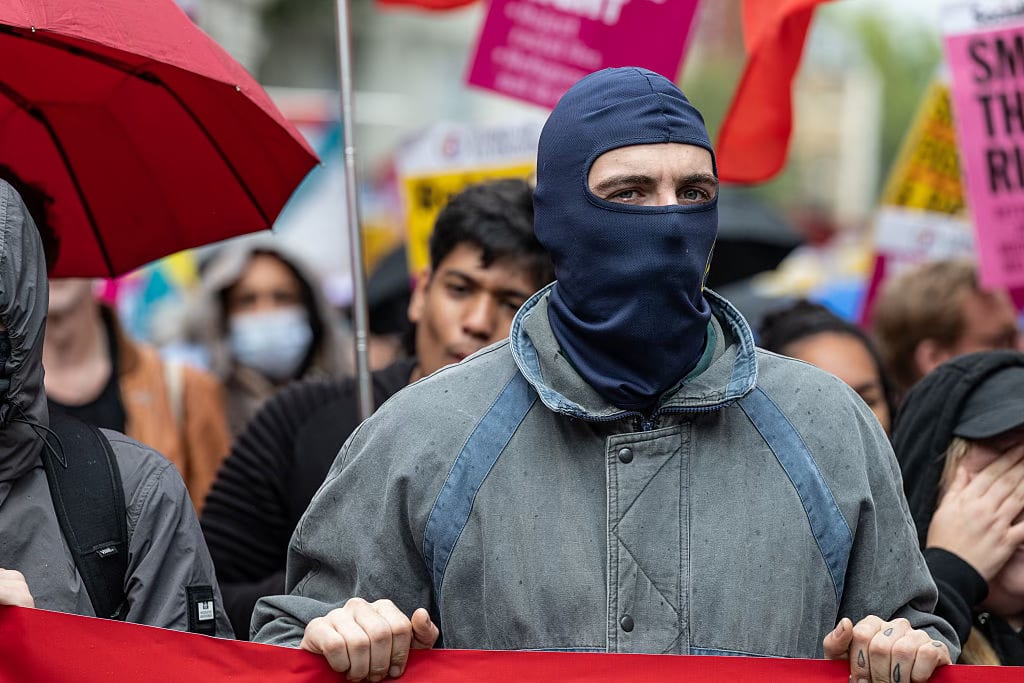Transcript: Robert O'Brien on "Face the Nation," October 4, 2020
The following is a transcript of an interview with White House national security adviser Robert O'Brien that aired Sunday, October 4, 2020, on "Face the Nation."
MARGARET BRENNAN: We go now to the White House and National Security Adviser Robert O'Brien. Good morning to you, Ambassador.
NATIONAL SECURITY ADVISER AMBASSADOR ROBERT O'BRIEN: Good morning to you, MARGARET. Beautiful day in Washington.
MARGARET BRENNAN: Eventful day. Sir, this is the most serious health crisis that a president has faced since Ronald Reagan was shot back in 1981. We are 30 days ahead of an election in the midst of an economic crisis, a health crisis. Every intelligence service in the world wants to know how the commander in chief is doing. What is his status. And when did you last speak with him?
AMB. O'BRIEN: Well, on his status, I spoke with the chief of staff this morning, and the good news is the president feels very well. And he actually wants to get back home to the White House and get back to work. But I think he's going to stay at Walter Reed for at least another period of time. Look, I went through this virus myself, as you know, MARGARET, over the summer. And even if you have no symptoms, and I would- I had very, very minor symptoms, day seven and eight are the critical days. So I think the doctors want to make sure that they're there for the president and that he's getting the best treatment. But he's doing well. I spoke with them to answer your question. On Friday. I was in Geneva holding some talks with the Russian team, my- my counterpart, General Patrushev, and I was able to call the president after he was tested positive to- to give him an update on the talks, get his feedback for the afternoon sessions. And he was in good spirits and- and was, you know, firmly in control.
MARGARET BRENNAN: Well, to that point, as you just say, the worst may be ahead, just knowing the course of the virus. Have you and the team discussed a scenario in which at some point the president might have to transfer power if he can no longer discharge the powers and duties of his office?
AMB. O'BRIEN: No, that's not something that's on the table at this point. Again, the president, you saw him on the video last night--
MARGARET BRENNAN: But it may be, as you just said.
AMB. O'BRIEN: Well he- look, he- he's doing very well. And- and just like it could happen to anybody. But we're prepared. Look, we have a great vice president. We have a government that is steady and is steady at the tiller. And we'll be briefing the president this afternoon. General Milley, Secretary Pompeo myself, we'll be giving him a national security brief this afternoon from- from the White House here. He'll be at Walter Reed. So we'll do it by secure video conference or secure phone. So we're- look, the government's doing well. The president's doing well. And I'm not going to address hypotheticals, but- but we do have a- we have plans for everything.
MARGARET BRENNAN: OK, because you do know that Presidents Reagan and Bush at one point temporarily signed over power while undergoing medical treatment. So this is--
AMB. O'BRIEN: Well, yes, I- I think those were- I know they were colonoscopies and- and so they were under anesthesia and- and weren't- weren't available at that time. I think we're in a different situation here. And- and so far, the president's in great shape. He's firmly in command of the government of the country.
MARGARET BRENNAN: OK. Do you know how the president became infected and how widely the virus has spread among the top ranks of our government?
AMB. O'BRIEN: You know, there's contact tracing going on. I mean, the first thing I want to do is I just want to, you know, say--
MARGARET BRENNAN: Who is doing it?
AMB. O'BRIEN: Well, the White House medical unit and- and others in the White House are working very hard on- on contact tracing and- and doing all the things that you do in these circumstances. And just- just like this has been going on for for some time with this virus. This is a very nasty, resilient virus. But I want to take a moment because I know the president watches your show, MARGARET and- and others do, to just extend the best wishes of the American people, to him and the first lady, to the senators and to my colleagues who have this. You know, again, having went through this myself, you're going to get through it. Listen to your doctors and do all the things they tell them. And- and look, we've got millions of people around the country fighting this COVID infection and the NFL--
MARGARET BRENNAN: Yeah.
AMB. O'BRIEN: --and the most controlled environments. And so my- my message out to- to the president, the first lady, but to all those who are infected, is a message of, A, speedy recovery. And, B, you know, you'll get through this. Just just fight it and hang in there.
MARGARET BRENNAN: I think the entire country joins you in that sentiment of- of hoping that the president does well and that our whole government does. But are you saying at this point that contact tracing is still underway and you don't yet know how much it has spread among the top ranks?
AMB. O'BRIEN: You know, I think what's happening is people are getting tested on a regular basis. I've seen a number of my colleagues here this morning who have tested negative for three or four straight days in a row. So, you know, if people test positive, they'll be quarantined and we'll follow the procedures that the CDC has. And what I can tell you, there are many men and women on the watchtower at the Pentagon, at the State Department, here at the White House, making sure that the country is safe. And we're- we're in very good shape. We've got a- great team in place. And the president's firmly in control.
MARGARET BRENNAN: Given continuity of government concerns, should the vice president return to the campaign trail and to the debate stage, as he's scheduled to- to this week?
AMB. O'BRIEN: Well, listen I- one of the things I also want to mention, I- I- I appreciate the fact that Vice President Biden came out with and said that he and his wife, Dr. Jill Biden, were praying for the president and the first lady. This is a time to come together, and we're thrilled, and I think all Americans are very happy that the vice president, his family, Senator Harris, and her family have tested negative. I think they'll be very strong. The Vice President of the United States, Mike Pence, who I'm in regular contact with has tested negative along with his family.
So I think there'll be very strict protocols in place to protect all the participants in the debate, Senator Harris, the vice president.
MARGARET BRENNAN: Yeah.
AMB. O'BRIEN: And so I think it's going to be a very safe environment for them to have a conversation with the American people want to hear. It's an important conversation. We've- we've got to deal with this virus. It's here.
MARGARET BRENNAN: Yes.
AMB. O'BRIEN: It came from China. We can never forget who- who's to blame for it. But we've got to continue to have the conversation so the American people can make a big decision at the end of this month.
MARGARET BRENNAN: I want to ask you, though, how the president was put at such extraordinary risk. He attended a fundraiser Friday, the twenty-fifth with someone who has since tested positive. He was at indoor and outdoor mass gatherings Saturday the twenty-sixth at the White House. Was that the chief of staff's call? I mean, who's responsible for allowing him to be in such close proximity and ultimately get infected?
AMB. O'BRIEN: Look, I think the president made this very clear, he's going to continue to run this government. And we have to face this virus. We have to open up the country. We've got to make sure that America is moving forward. We're not getting left behind by- by China or other adversaries. And in this case, China, which was responsible for the virus. It's very hard no matter what precautions you take. And as- as you know, MARGARET, I was one of the early proponents with the NSC of wearing a mask. I regularly masked up. I- I social distanced, and yet I still- I came into contact with it. This is a very resilient, nasty--
MARGARET BRENNAN: It's highly infectious. It's highly infectious, but--
AMB. O'BRIEN: Yeah. Yeah.
MARGARET BRENNAN: -- that would only seem to indicate that around the president of the United States, you need to be even more careful. So how was he put in these circumstances?
AMB. O'BRIEN: Well, normally, MARGARET and as you know, we had a very, very rigorous testing protocol and still do so that anyone who was going to come within six or eight feet of the president, you know, was tested and- and we did our best. But the president made it clear, as he did last night, that he was going to continue to govern. He was going to continue to run the country in the face of this virus. And- and, you know, whether it's the NFL which has strict protocols or college football or college campuses that have put up bubbles, this is a resilient, nasty virus. We're going to have to stop it. And- and we're going to do it with therapeutics.
MARGARET BRENNAN: OK.
AMB. O'BRIEN: We're going to do with a vaccine that's going to come out, and we're going to come out on the other side of this stronger.
MARGARET BRENNAN: OK, I'm understanding you saying you still don't know the source of the virus at this point, and the source of the president's infection. I- before though- I don't want to leave behind something you mentioned. You said you met with Russian officials. Is there any intelligence to suggest that- that Russia and others are using the president's diagnosis as any kind of campaign against the United States. And given the upcoming election, the interference that we already know that they are conducting, how concerned are you?
AMB. O'BRIEN: No, look I think our adversaries know that- that the United States government is steady at the tiller and that we're- we're protecting the American people. With respect to Russia in the elections, one of the reasons I went to meet with General Patrushev is to let him know that there would be absolutely no tolerance for any interference with our Election Day, with our voting- with the vote tallies, and demanded that- that Russia not engage in that sort of thing. The Russians have committed to doing so. And so, you know, look, it's Russia. So as President Reagan said, and as President Trump often says, it's trust but verify. So we'll keep an eye on it, but the Russians did commit to not interfere in the elections. We'll- we'll see what happens. And- but that was a message that the president thought it was important that I go deliver in-person to- to General Patrushev, who's- who, as you know, is President Putin's right hand person.
MARGARET BRENNAN: Ambassador O'Brien, let's- let's hope they stop doing what they are doing. Thank you very much for your time. I do appreciate you coming on this morning to share an update.
AMB. O'BRIEN: It's always great to be with you, MARGARET. Thank you.



